Before the current global pandemic began, we were already in crisis. Powerful, wealthy, and largely white-led corporations and individuals were attacking us not just as workers, but as people of color, mothers and fathers, tenants and homeowners, patients and debtors, caregivers, students, and community members. Millions were homeless, and many of us owed billions in student loans and credit card debt, had tenuous access to medical care, or couldn’t get paid time off when we were sick or needed to care for loved ones. We were living on the edge: one paycheck away from financial ruin, one phone call away from losing our freedom or our lives. All of this while corporations and billionaires were increasing their wealth and power at rapid rates.
Communities of color were particularly under siege, facing not only all these realities to a greater degree, but on top of them, the daily threat of violence from a racist system. The global pandemic has deepened all of these problems. The uprisings after George Floyd’s murder have magnified them.
We can already see what is coming next: city, state, and federal governments, corporations, and politicians across our country calling for austerity and concessions from workers and communities, on the one hand, while proclaiming “Black Lives Matter,” on the other. Disney recently laid off 100,000 workers — even though it still plans to give $1.5 billion to shareholders — while sharing a video touting how the company aims to “lead the way” on addressing racism.
The reality is that while the richest folks in the world, who are overwhelming male and white, have increased their wealth by hundreds of billions, the companies they lead are planning to evict us, lay us off, and cut vital programs that keep our families fed and off the streets.
Mapping where we have opportunities to build together
Our movements need concrete tools to go on offense. We know that, over the next five years, union contracts covering tens of millions of workers will expire nationwide. Long before that, governments and companies will be demanding to re-open contracts to negotiate.
Imagine using those union contract expirations and reopeners around the country to build on the common good demands folks are already making. This work would build on the organizing and demands created in response to the pandemic, such as those of the United Teachers of Los Angeles (UTLA), the Chicago Teachers Union (CTU) and their allies, the Massachusetts Teachers Association, and the Boston Teachers Union. As the country shut down to stop the spread of the coronavirus, they called for instituting eviction and foreclosure moratoriums, providing sick pay, and ceasing all detentions and deportations by ICE. Now, they are responding to the uprisings fighting for Black lives and to defund the police. CTU is supporting on-the-ground organizing to push for police to be removed from schools, as is UTLA and numerous other education unions across the country. SEIU USWW, AFSCME 3299, UNITE HERE Local 11, UAW 2865, and UTLA joined with community allies in June 2020 committing to use their people power and financial resources to help win the agenda of the Movement for Black Lives. Think about how this work could spread to every sector of the economy and geography of the country, with hundreds of community groups and unions engaged in overlapping campaigns and potential strikes over coordinated common demands.
With this in mind, the Bargaining for the Common Good (BCG) network has undertaken a new project to support and connect activists nationwide. We are excited to share a map of over 5,500 union contracts we have collected from across the United States to create a powerful tool for our collective work.
Check out Bargaining for the Common Good Mapping Tool here.
We know corporations are already working to consolidate their wealth, control, and power as we fight for our lives against the COVID-19 pandemic and the racist, oppressive system that has enabled it to claim so many lives and wreak so much economic devastation. We are seeing incredible acts of hope, love, and generosity, as well as a dedication to the collective — to the common good.
We need to build on this energy to confront those who seek to further systemic inequality and racism. This map from Bargaining for the Common Good is an essential tool in that effort. When we work together, we have the power to transform our world into the one we deserve.
If you want to support this project, contact Sara Myklebust, BCG’s Research Director, at Sara.Myklebust@georgetown.edu.
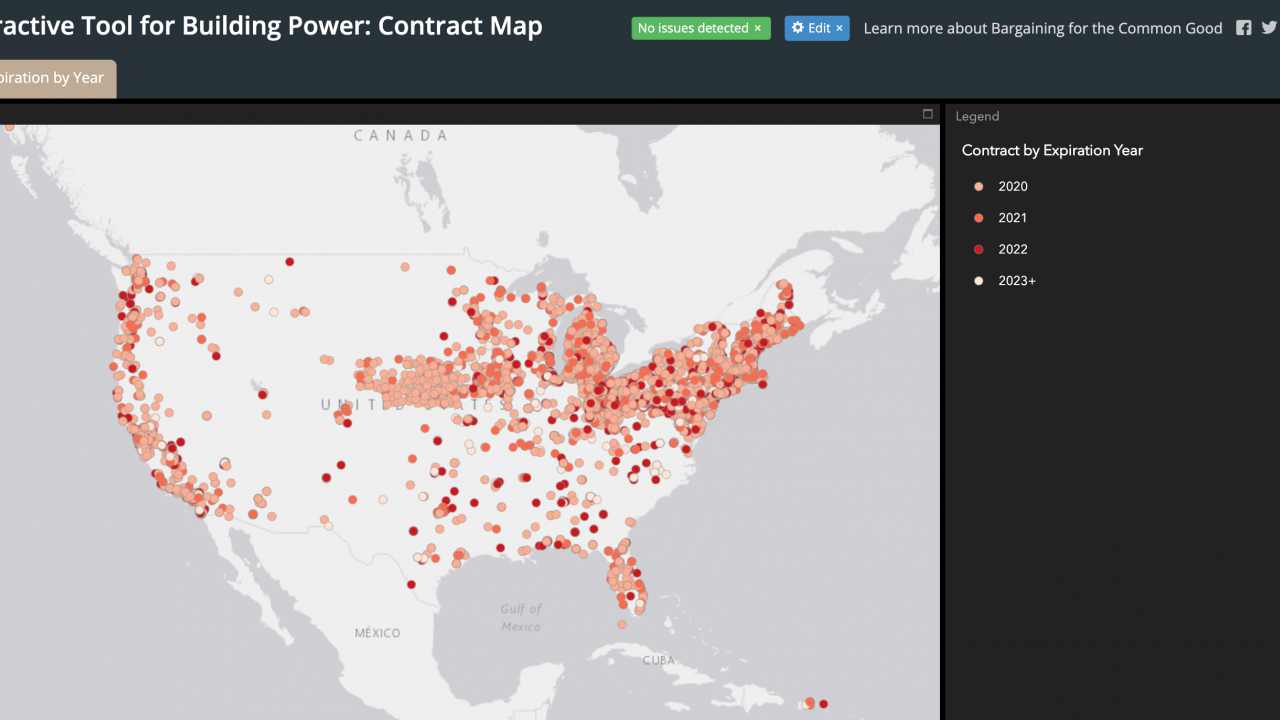
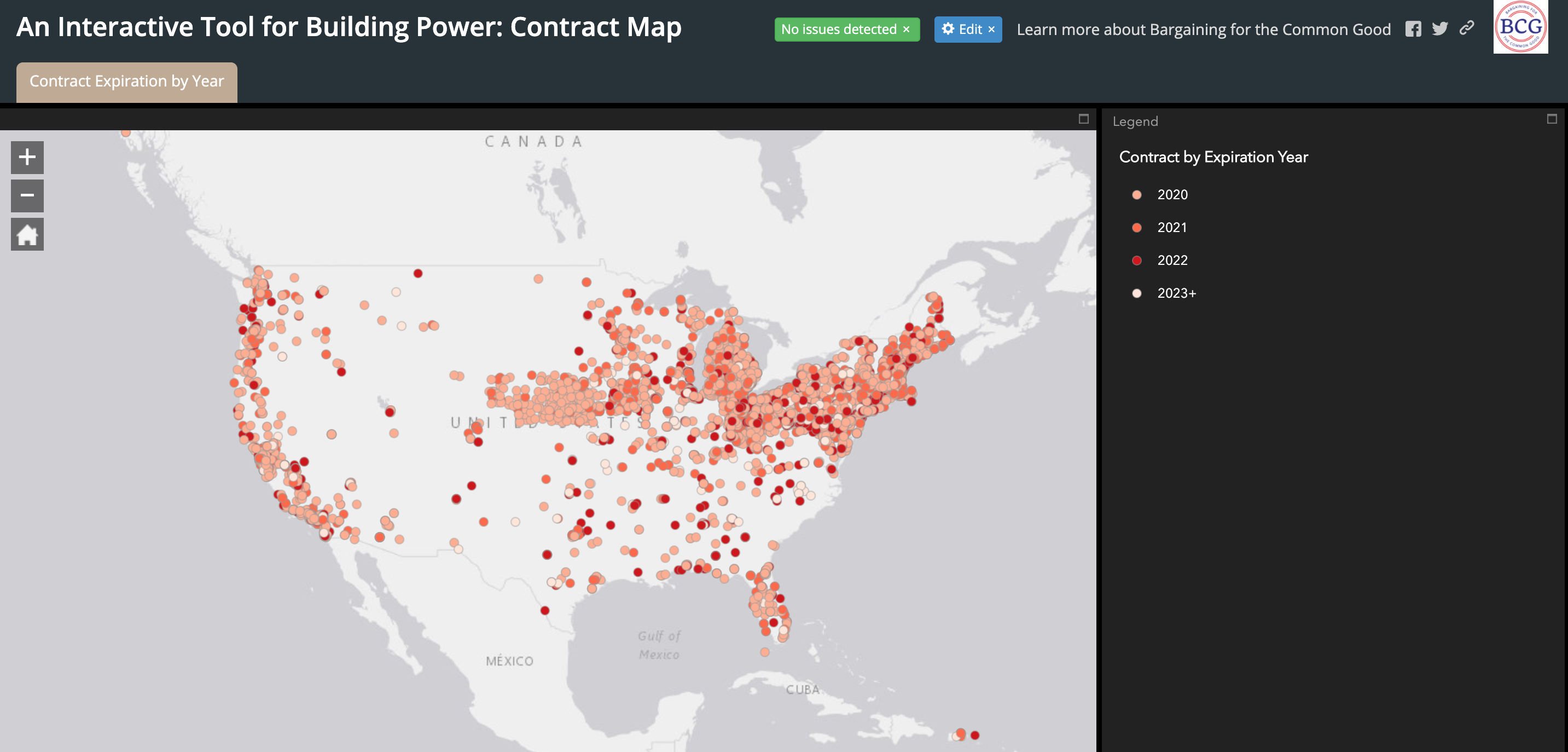
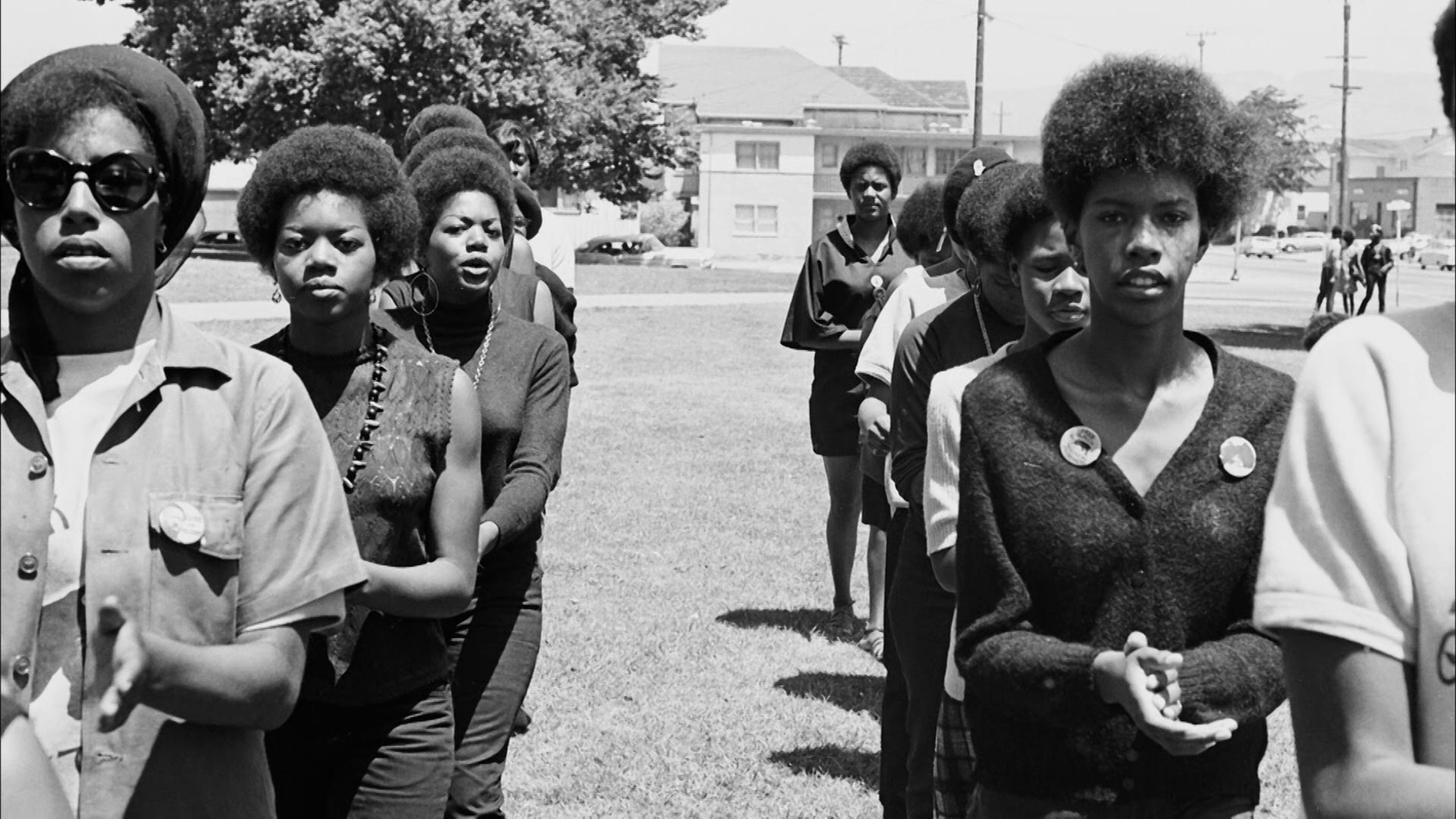
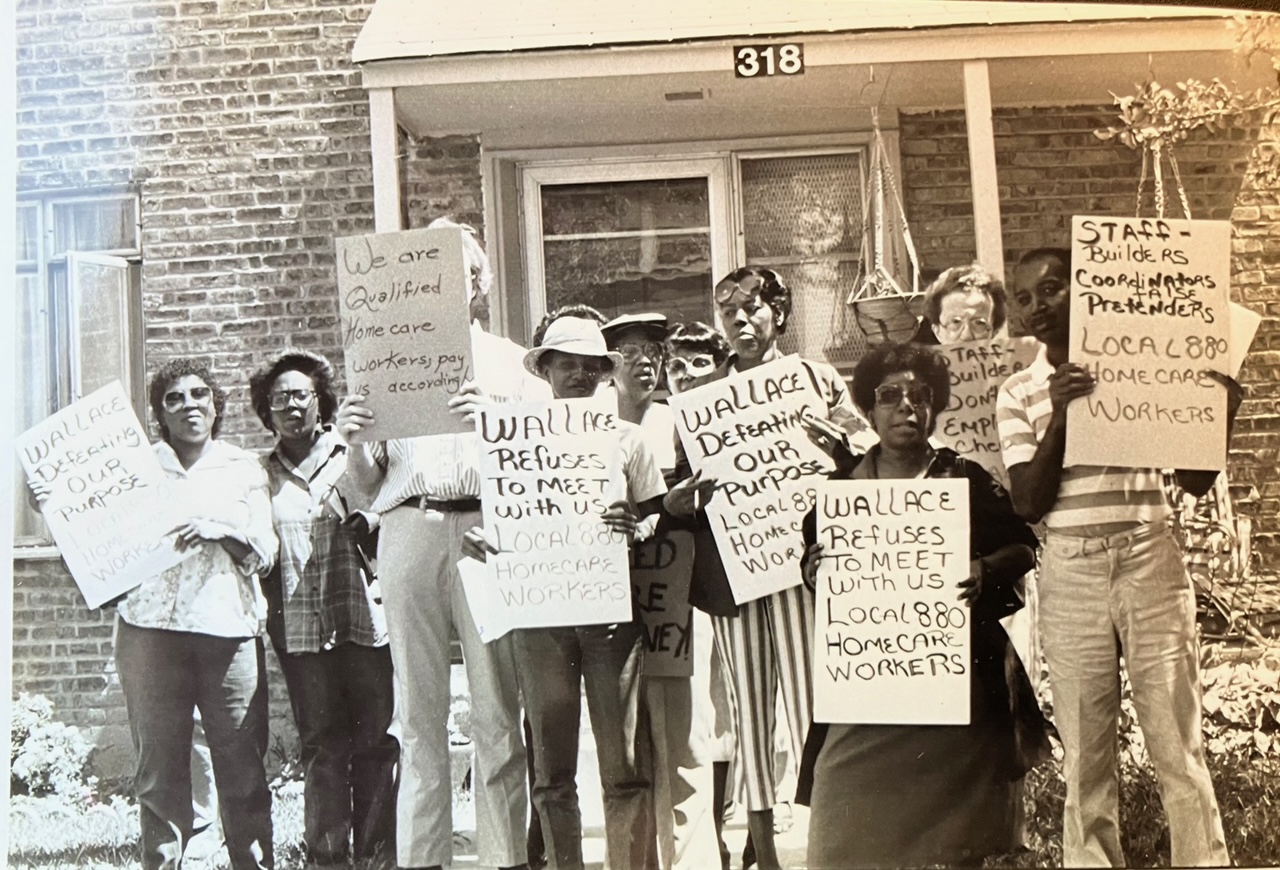
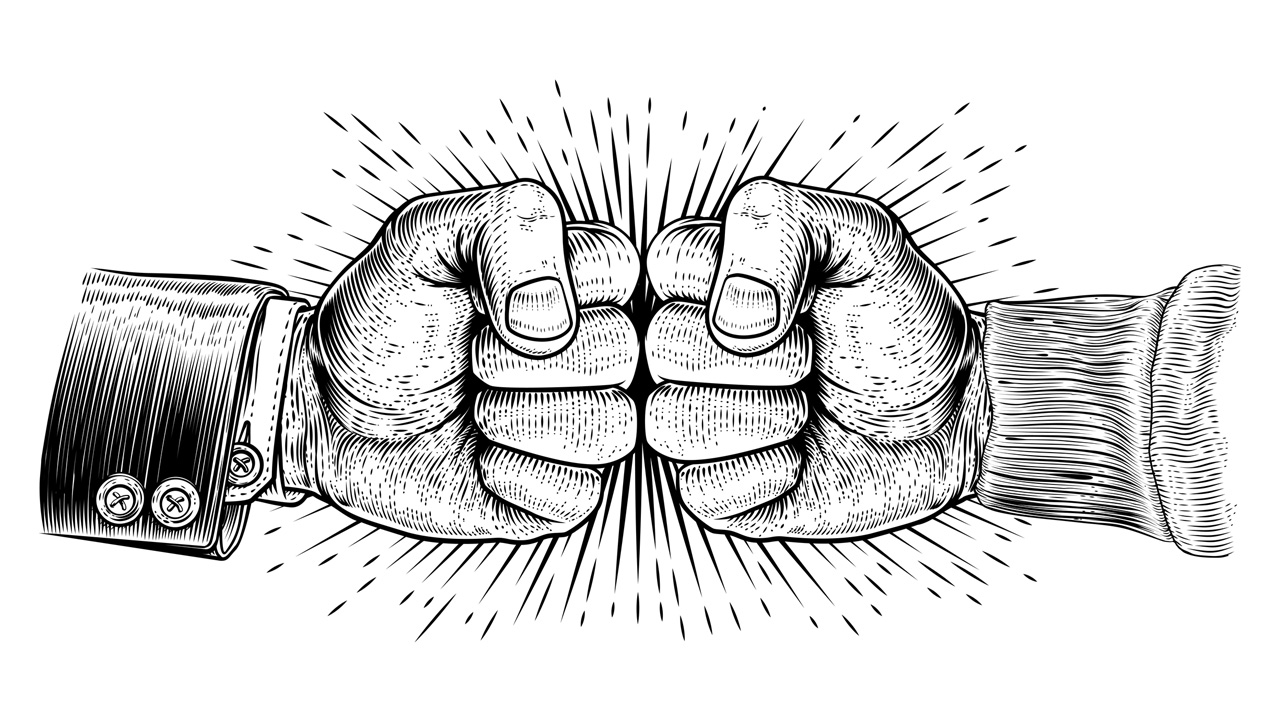
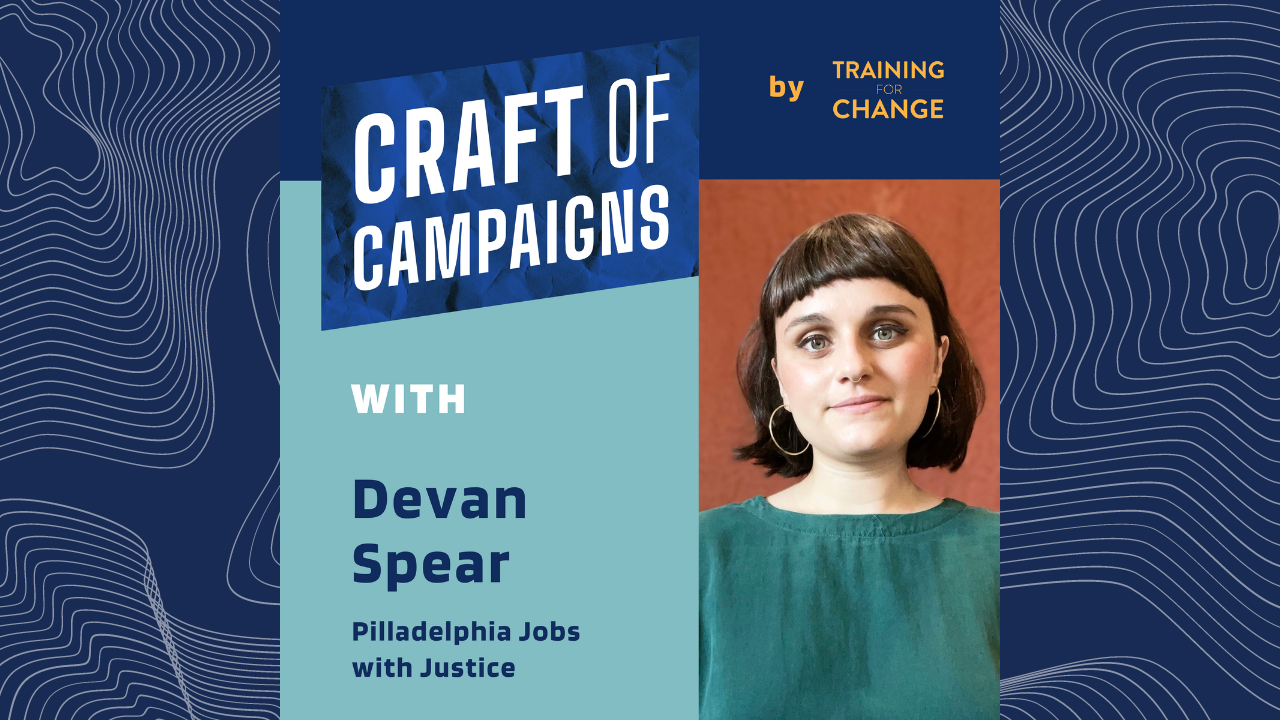
Become a Sustaining Donor to The Forge!
The Forge is built by and for organizers. Though we’ve raised a bit of startup money to build the site, this publication and community will be only as strong as we, together, make it.
Please click below to become a sustainer. When we have some cool swag, you’ll be first in line!
DonateRelated Articles
Will the Revolution Be Funded?
Organizing One of the Largest Black Led Unions in the United States
How Labor Can Fight Fascism
Dusting off a Seven-Year-Old Demand To Win Millions for Philly’s Public Schools
Get the latest articles sent to your inbox